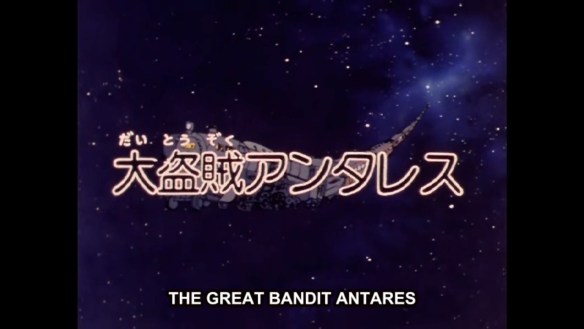Hello folks, and welcome back to Wrong Every Time. Today I am eager to continue our journey aboard the Galaxy Express, and see what wonders the cosmos have to offer us. Well, I say that like I’m expecting anything good to happen, when in truth Tetsuro’s journeys have mostly centered on veneers of exotic beauty peeling away to reveal cores of profound tragedy. The abandoned sands of Mars, the superficial freedom of Titan, and even the majestic beauty of one-time train attendant Claire, all vivid dreams that soon proved themselves nightmares of mankind’s eternal, self-destructive striving.
Of course, theme-ravenous cynic that I am, Galaxy Express 999’s broader reflections on society, capitalism, and whatever else Matsumoto can think of has only made the experience all the more rewarding for me. Through its mixture of fantastical vistas and humanity-in-decline parables, Galaxy Express has proven itself a paragon of one of my favorite genres: the post-apocalyptic travelog, typified by stories like Girls’ Last Tour and Kemurikusa. As it turns out, the ruins of mankind’s hubris serve as an ideal venue for ruminations on what is most essential to humanity, what we must hold sacred even when all else has crumbled. Let’s see what wonders await us at the next station!
Episode 4
Leiji Matsumoto is certainly an interesting pillar of anime history. His character designs are iconic, but it’s not really his comic art sensibilities that he is most renowned for – it is his vivid imagination, tethering the melancholy and grandeur of authors like H.G. Wells to the energy and action-packed drama of weekly comic books
Hell, even H.G. Wells’ original stories were largely episodic, with books like 20,000 Leagues Under The Sea offering a fresh danger or wonder every chapter. Matsumoto’s brilliance speaks to the cruciality of reading broadly – he draws heavily from influences outside of manga (necessarily, given the era he started drawing in), and his works are far richer as a result. One of the greatest creative threats facing modern anime is that so much of it is created by and for people who do not read broadly, and thus value formula over discovery, even if just unconsciously
“The Great Bandit Antares”
“My, Tetsuro, you must have been tired.” Maetel seems quite fond of Tetsuro. I wonder if she sees in him a sort of freedom she wants for herself – it’s clear she’s operating under strict orders and is somehow incorporated into the power structure of this world, whereas Tetsuro is naive and lacking in power, but genuinely free in both thought and action
“But Tetsuro, once you get your metal body, you won’t need any more sleep.” These words are contrasted against Tetsuro laughing in his dreams. These metal bodies seem to imply stasis or finality – it is the red blood of humanity that carries the potential to grow and change, whereas the cyborgs are trapped in stable cages. Is it worth it to live forever if you abandon the ability to even dream?
Tetsuro’s dreams carry him back to happy times shared with his mother and father. His father actually has a distinctive adult design, hewing to neither Matsumoto’s space captain nor gremlin archetypes
An overhead pan reveals the Galaxy Express has a fully stocked coal car. What a whimsical mode of transportation
The speakers inform us that an unidentified object is traveling beneath the train
The object is a goddamn space pirate who’s been clinging to the undercarriage Cape Fear-style. Once again, when train journey conventions and space travel conventions collide, train conventions always win
Maetel continues to marvel at Tetsuro’s peaceful sleep. Her envy seems like a clear indication she’s an android herself
The conductor’s frantic pacing through the cabins alerts our heroes to something being wrong
We’re seeing a much wider variety of body archetypes in this episode, as our space pirate shakes down all the Galaxy Express’s passengers. This older man who stumbles into their cabin is an interesting mix of forms – larger and broader than Tetsuro, but with a similar boyish face, here lent age mostly through the addition of a mustache
Matsumoto feels less like a dedicated manga-first artist than a storyteller who can draw, telling his stories in the medium that is commercially available to him. His drawings are simplistic and often distractingly similar to each other, but the power of his work is not contained in the theoretical brilliance of his paneling and draftsmanship
Funny to compare that to modern shonen manga, which generally feature exceptional draftsmanship and very few ideas
Still, Maetel’s design is so damn iconic. Even this brief mid-distance shot emphasizes the dramatic yet somehow graceful contrast of her black coat, hat, and hair
The pirate introduces himself as Antares. Another strong design, and again leaning towards historical piracy rather than space-faring
Antares is impressed by Tetsuro’s blaster, which apparently makes them fast friends. Tetsuro suggests he travel to the planet where they give out mechanical bodies for free, but Antares says that’s not what he’s after
He takes Maetel hostage, demanding to be taken to the engine room
A bold play by the conductor! He slams Antares with the door of the coal carriage, then buries him under the coal. Thank goodness space trains run on old-fashioned coal
But Antares is slipperier than they think! Well actually, the conductor just gives him a perfect opportunity to regain control, prioritizing filing a report on the incident over making sure the goddamn pirate is restrained
The engine refuses to obey his commands until he threatens to kill Tetsuro. It feels very appropriate for this universe that there’s no one steering this train but the train itself – everyone is bound to a mechanically programmed track of some kind, whether they are trapped within the sterile eternal present of a mechanical body or hopelessly pursuing the dream of that ambiguous eternity
“This respected Galaxy Express 999 is going to stop right in front of my house.” Antares revels in the power he briefly holds over the seemingly implacable forces of this universe. In spite of this stagnant galaxy’s implacable systems, one man with a gun and nothing to lose can still affect some change
Antares then uses an x-ray scanner to confirm that both Tetsuro and Maetel are humans. Both scan clean, but I frankly don’t trust this scanner’s ability to truly reveal Maetel’s nature
Our space pirate actually has an unexpected cordial streak, offering to reveal his own bones in penance for asking them the same
We see that his body is full of unexploded energy rounds – “one day, one will explode, and I’ll disappear without a trace.” In the parlance of this show, Antares is actually “more human than human,” doomed to eventually pass away without warning. Yet despite the fragility of his life, he still values the vitality of a human lifespan over the potential for a cyborg frame
Antares’ home actually appears to be some kind of orphanage housed within an asteroid. So he’s robbing from people who couldn’t possibly need their wealth for the sake of children with nothing, embodying a far more gallant vision of humanity than the actual rules of this galaxy
“Anyone who tampers with the course of the train is to be executed!” In contrast, the Galaxy Express Administration is swiftly proving itself as heartless as the cyborgs of Megalopolis
Love the surreal image of this wooden garden gate they open to come aboard Antares’ asteroid
Antares is gentle and loving with the children, who all refer to him as “Daddy”
He reveals his wife died two years ago. I like the color design for this flashback, conveying the distance of memory by reducing all the compositions to shades of blue and red
“Even if your foe sheds tears, show no sympathy and shoot without hesitation if necessary!” The only way Antares can help this boy is through passing on his understanding of the violence of space. Even our gestures of kindness or mutual concern are necessarily preoccupied with the inevitability of violence in this world – when society is organized this way, there is simply no gentler alternative
To Tetsuro’s insistence he still wants a metal body, Antares can only laugh and reflect that he felt similarly as a boy, then request Tetsuro visit if he ever comes back this way
“Will you remember me at the end of the line” is already proving itself a key refrain in this show. Can we achieve eternity without discarding what makes us human, the connections to the people who helped us along the way? If our own world is anything to go by, the answer is not a happy one
“Even if I’m gone, one of my kids will welcome you.” Antares proposes a very different idea of “eternity,” framed around passing his lessons and generosity on to the next generation
Antares requests that Maetel stay with him, but takes her rejection in good spirits
And back on the Galaxy Express, Maetel protects Antares in turn, ensuring his home’s location is not saved for later reprisals
“I bet he used to be a child like you. Brave, kind-hearted, and full of hopes and dreams… but life in space is hard.”
And Done
At last, our brave travelers have made a genuine friend! And wouldn’t you know it, they were only able to find a kind soul by traveling outside the lines of this galaxy’s public face, discovering more generosity and compassion among the bandits than the alleged protectors of humanity. After three episodes of tragedies born of desperation or simply man’s inhumanity towards man, it was a welcome reprieve to learn there are still decent people in this world, even if they can only make their way by diverging from the railway’s tracks. It is easy enough to be kind as a child, but it is a hard thing to maintain a gentle soul in a world that demands such hardness of spirit. And so, with at least one friend awaiting his return, Tetsuro travels on to the edge of the solar system.
This article was made possible by reader support. Thank you all for all that you do.




